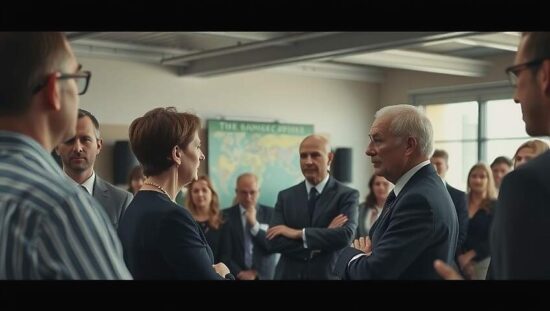Internal divisions are simmering within the Christian Democratic Union (CDU) as a faction advocating for a strategic engagement with the Alternative for Germany (AfD) encounters vehement opposition. Schleswig-Holstein’s Minister President Daniel Günther dismissed any suggestion of rapprochement, asserting in an interview with “Stern” magazine that the CDU maintains a “clear stance” towards the AfD that remains inviolable. Günther emphatically stated that equating the two parties fundamentally misunderstands the meaning of “bourgeois” values.
He argued that a shared value system, common ground, or potential for coalition building simply do not exist. “Anyone who takes democratic responsibility seriously cannot form an alliance with a party that undermines our institutions and trust in the state” Günther stated, characterizing the AfD as representing “division, incitement and a challenge to our liberal democratic order.
This view was echoed by Karin Prien, the CDU’s deputy chair, who labelled the AfD as the antithesis of bourgeois politics, stating that the party, “in parts – and increasingly so – is right-wing extremist”. Prien ruled out the possibility of forming “bourgeois majorities” in parliament alongside the AfD. While acknowledging that some AfD voters may hold traditionally conservative views and feel alienated from mainstream parties, she emphasized that restoring trust with this demographic is a shared responsibility, requiring engagement not just from the CDU, but also from the Social Democrats (SPD) and the Green Party.
The tensions surrounding the CDU’s strategy towards the AfD are expected to be a key focus of a party leadership meeting scheduled for this Sunday. The discussion comes amidst calls for a strategic realignment of the party’s approach, most notably from former CDU General Secretary Peter Tauber, who has publicly advocated for a shift in direction. The internal debate underscores the complex political landscape in Germany, where the rise of the AfD continues to challenge established political norms and force established parties to confront uncomfortable questions about their own positions and outreach strategies. The upcoming leadership meeting is anticipated to reveal the extent of the divisions and the potential for a significant policy shift within the CDU.





